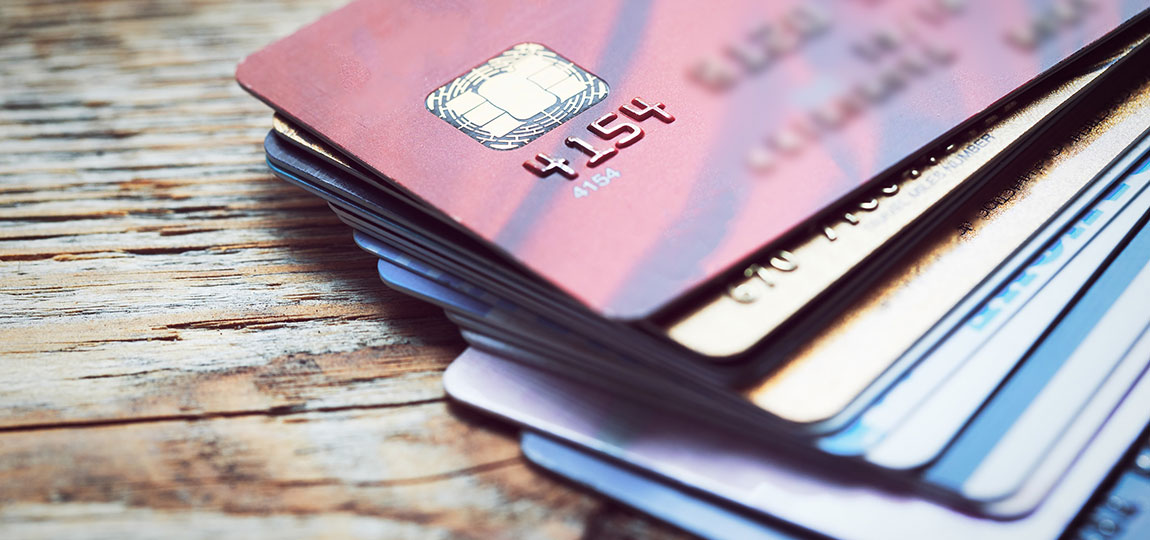There’s a popular TV commercial that ends with the line, “What’s in your wallet?” Of course, the ad is referring to the credit card it’s promoting.
But for many consumers, what’s in their wallets is usually a mix of credit cards and debit cards. So, how do they pick which one to use? Is there really any difference between a credit card and a debit card? You bet there is.
To get a better understanding of how the cards differ, here’s a glimpse at some of the benefits associated with using credit cards:
- Many credit cards offer additional insurance/warranties on items or services above and beyond what is offered by the retailer. This feature isn’t available with most debit cards.
- Your credit card usage impacts your credit report, while debit card usage doesn’t. So, if you use your credit card(s) responsibly, they can have a positive impact on your credit history and credit score.
- Many credit card companies offer perks for using their cards, such as the ability to earn rewards like cashback, airline miles, and gift cards. These perks are usually tied to a point system where you earn a certain number of points for every dollar you spend with your credit card. While there are some debit cards that offer rewards programs, they typically aren’t as easy to find as reward-based credit cards.
- The Fair Credit Billing Act allows credit card users to dispute unauthorized purchases or purchases of goods that are damaged or lost during shipping. Card holders are not assessed the disputed charges while the dispute is under investigation.
- Credit cards typically offer more protection liability-wise compared to debit cards. If a credit card user reports the loss or theft of a card in a timely manner, maximum liability for purchases made after the card has gone missing is $50. While debit card holders do have this same protection if their cards are lost or stolen, they typically have a shorter timeframe to report the lost card. If the card isn’t reported missing within two business days, debit card holders could be held liable for up to $500 of resulting fraudulent charges, or they could be liable for everything if they don’t report the card missing within 59 business days. It’s important to note that some banks do offer more extensive liability protection on their debit cards, but they’re not required to by law.
And using a debit card has its advantages as well:
- Debit cards can help keep you out of debt. That’s because the cards are linked directly to your bank account, unlike a credit card where you’re essentially borrowing the money. So, as long as you keep a close eye on how much money you have in your bank account to avoid accidental overdrafts, you’ll only spend the money you have and avoid costly fees. With a credit card, it’s easy to rack up interest fees on the money you’re borrowing, unless you pay back the full card balance each month. Paying with a debit card can also help you avoid other common credit card charges like late payment fees and annual fees.
- With a debit card, you don’t have to worry about paying yet another monthly bill. But be sure to always keep an eye on your account activity and statements. Doing so will help you to spot any suspicious charges early on, and can also prevent you from overdrawing your account. Reviewing your bank account activity is easier than ever now that most banks offer online banking and mobile banking to their customers.
Ultimately, which card you choose will depend on your personal financial picture, as well as the kind of purchase you’re making. Knowing how your credit and debit cards differ is the first step in selecting the one that’s right for you!
